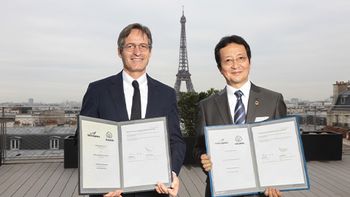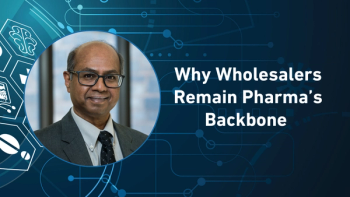
Addressing Misconceptions Surrounding Psychedelics
In the third part of his video interview with Pharma Commerce Editor Nicholas Saraceno, Jon Kostas, executive director, Association for Prescription Psychedelics (APP), addresses the importance of stopping the spread of misinformation when it comes to psychedelics.
In a video interview with Pharma Commerce, Jon Kostas,executive director of the APP, discusses how the main goals and priorities of the APP are to serve as a trusted industry voice in the realm of psychedelics, aiming to provide clarity in an area that is often confusing due to the wide range of information and varying compounds. The organization seeks to advance psychedelic treatments through the FDA approval process, making these therapies accessible, affordable, and covered by insurance. In addition to expanding access, the APP emphasizes patient safety, ensuring that individuals receive the correct dosage and undergo appropriate mental and physical screenings before treatment. The focus is also on establishing best practices and safety standards for psychedelic use, ensuring that only eligible and qualified patients pursue these treatments.
Kostas also explains why he believes there was a need for this type of resource, and what went into the making the launch happen, while sharing a personal story surrounding his participation in a randomized clinical trial involving psilocybin.
A transcript of Kostas’ conversation with PC can be found below.
PC: What went into making the APP a reality, and what were some of the challenges that you faced throughout the process?
Kostas: The biggest challenge was a lot of the misinformation about psychedelics and the stigma. As a former study participant, I was in a clinical trial about 10 years ago. In 2015, I entered it as a treatment-resistant patient for alcohol use disorder. I had tried everything to stop drinking. Nothing worked. I was terrified of psychedelics, but I was so desperate that this was the only shot I had at getting any help, and this worked as soon as my first of three psilocybin sessions.
Psilocybin is one of the compounds in hallucinogenic mushrooms. I had a synthesized version of that. I've never ingested mushrooms, and I haven't done psychedelics outside of this clinical trial. I stopped drinking after my very first session, and I haven't touched alcohol. I haven't craved alcohol, and I haven't craved psychedelics at all after leaving the trial. This worked almost like an antibiotic for me, and there is a lot of misinformation out there, such as, can you treat one drug with an addiction to another drug?
Alcohol is technically a drug. They're also studying this for opiate use disorder, methamphetamine use disorder, cocaine use disorder, nicotine. The early results look very promising, and I'm hopeful that we'll have a lot more options for patients in the coming years, but a lot of the lawmakers thought that I was still taking psychedelics every day, like a prescription pill, or that I might have gone to the jungle to do this, but I had been doing this clinical trial in New York at NYU.
The biggest challenge has been the misinformation. We've been relying heavily on our scientific advisors that are from the universities and academic researchers that have been doing this research for, in some cases, decades. Then, there are these biotechs that are actually getting this through drug development to hopefully make this a prescription and make this a viable treatment, and give another option to patients. They have their whole set of obstacles as well through the Schedule I drugs, so there have been a few different obstacles, but that's why we felt that this was a great time to get everyone together, get all the leaders together, to really drive that voice and steer the conversation of how we get the federal government to support this research and support giving new options to patients out there.
Newsletter
Stay ahead in the life sciences industry with Pharmaceutical Commerce, the latest news, trends, and strategies in drug distribution, commercialization, and market access.




